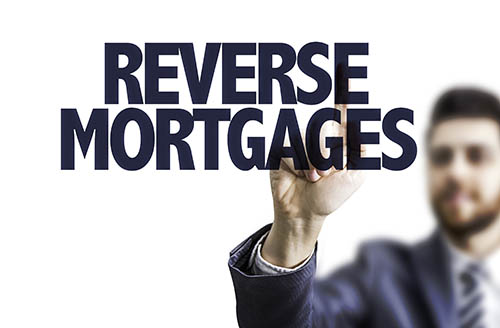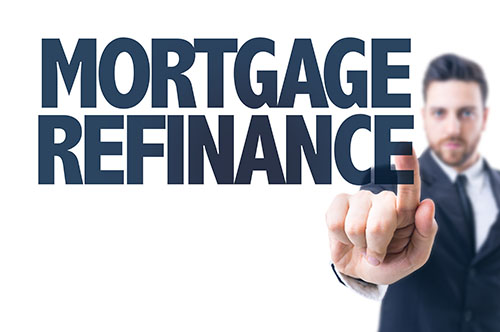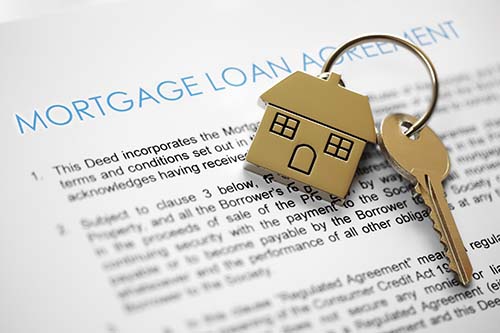 With approximately one million people having purchased vacation homes in the last year, this type of residence is gaining popularity for those who are interested in a home in a beach setting or a vacation hot spot. However, while a second home can seem like a great purchase and solid investment opportunity, there are different requirements that go into this type of purchase. If you’re considering a vacation home, you may want to be aware of the following financial factors.
With approximately one million people having purchased vacation homes in the last year, this type of residence is gaining popularity for those who are interested in a home in a beach setting or a vacation hot spot. However, while a second home can seem like a great purchase and solid investment opportunity, there are different requirements that go into this type of purchase. If you’re considering a vacation home, you may want to be aware of the following financial factors.
The Down Payment Amount
If you currently have a primary residence, you may be aware that you don’t need to put down 20% or even 10% in order to make a home purchase, but things are different when it comes to a vacation home. Because you will be taking on an additional mortgage, there is greater risk involved, and this means you will likely have to put in at least 10 percent. Because of this, many homebuyers utilize the equity they have in their first home to make up the down payment.
About The Credit Score
Most people that have a credit score of more than 500 have the ability to use a mortgage product and purchase a home, but if you’re buying a second property, you’ll need a higher credit score in order to facilitate the purchase. Because there is more risk involved, lenders will want to make sure you’re a good bet. In addition, if you do have a lower credit score, lenders like Fannie Mae may also expect you to put more down to decrease the risk involved for them.
The Income Required
Since you’ve been through the mortgage process for your first home, you’re probably aware that you debt-to-income (DTI) ratio needs to be a certain amount in order to qualify for a mortgage. While your DTI for a primary residence may be a little bit higher since it’s your only payment, this ratio will be lower for your vacation home since it’s higher risk. This means you’ll require a slightly higher income than for your primary residence in order to get approved.
Deciding to purchase a vacation home can be a very exciting concept for many people, but there are a number of different financial requirements that go along with buying another residence. If you’re in the market for a vacation property and are curious about what’s involved, contact your local real estate professional for more information.
 If you’re just jumping into the game of home purchasing, you are likely considering all of your loan options and may even have heard the term mortgage rate lock. For those who don’t like to gamble, a mortgage rate lock can offer a bit of reassurance, but there are also some downsides to this type of protection. Before signing off on this, here are the details on rate locks so you can make an informed decision.
If you’re just jumping into the game of home purchasing, you are likely considering all of your loan options and may even have heard the term mortgage rate lock. For those who don’t like to gamble, a mortgage rate lock can offer a bit of reassurance, but there are also some downsides to this type of protection. Before signing off on this, here are the details on rate locks so you can make an informed decision. There are few things more exciting than finding your ideal home, but with the rising cost of housing, a person’s dream home can often come with a very high purchase price. If you’re wondering how much home you can truly afford and how your cost of living will fare for your mortgage approval, here are some of the details on what you can expect when it comes to finding a home at an affordable price.
There are few things more exciting than finding your ideal home, but with the rising cost of housing, a person’s dream home can often come with a very high purchase price. If you’re wondering how much home you can truly afford and how your cost of living will fare for your mortgage approval, here are some of the details on what you can expect when it comes to finding a home at an affordable price. Most people who have been on the market for a home are familiar with what the term ‘mortgage’ means, but many have not heard of a reverse mortgage and aren’t aware of how this product can benefit them. If you’re nearing retirement and are contemplating a new home or even relocation to another community, here are the details on a reverse mortgage and how this option may benefit you.
Most people who have been on the market for a home are familiar with what the term ‘mortgage’ means, but many have not heard of a reverse mortgage and aren’t aware of how this product can benefit them. If you’re nearing retirement and are contemplating a new home or even relocation to another community, here are the details on a reverse mortgage and how this option may benefit you. In an effort to boost the value of their property, many homeowners invest in renovations that will help them sell at a higher price. However, with all of the renovation options, it can be hard to know what kind of fix-ups are really worth investing time and money into. If you’re looking at all of your options for home improvements, here are some surefire fixes that won’t stress the bank and will probably bump up the offering price.
In an effort to boost the value of their property, many homeowners invest in renovations that will help them sell at a higher price. However, with all of the renovation options, it can be hard to know what kind of fix-ups are really worth investing time and money into. If you’re looking at all of your options for home improvements, here are some surefire fixes that won’t stress the bank and will probably bump up the offering price. A good credit rating is built on a number of financial factors including paying your bills on time and the length of your credit history, but loans can also be a source of bolstering your credit score in a positive way. While this means that loans can actually be a good thing, there are also the kinds of loans that can have a damaging impact on acquiring a mortgage. If you’ll soon be pursuing your own home purchase, here are some loans that may have a negative impact.
A good credit rating is built on a number of financial factors including paying your bills on time and the length of your credit history, but loans can also be a source of bolstering your credit score in a positive way. While this means that loans can actually be a good thing, there are also the kinds of loans that can have a damaging impact on acquiring a mortgage. If you’ll soon be pursuing your own home purchase, here are some loans that may have a negative impact. There was a time when it was possible to acquire a mortgage shortly after filing for Chapter 7 bankruptcy, but with the shifts in the financial sector, the timeline on such a mortgage approval has changed in recent years. If you’re currently undergoing a Chapter 7 bankruptcy and are wondering how this will impact home ownership, here are the basics on this type of bankruptcy and what it may mean for you.
There was a time when it was possible to acquire a mortgage shortly after filing for Chapter 7 bankruptcy, but with the shifts in the financial sector, the timeline on such a mortgage approval has changed in recent years. If you’re currently undergoing a Chapter 7 bankruptcy and are wondering how this will impact home ownership, here are the basics on this type of bankruptcy and what it may mean for you. For many homebuyers who are new to the market, it can be very comforting to be on a fixed rate mortgage where fluctuating interest rates cannot have an impact on your monthly payments. While a variable rate mortgage can sometimes lead to significant savings at the end of the day, there are a few ways you can tell if your monthly payment is on the upswing.
For many homebuyers who are new to the market, it can be very comforting to be on a fixed rate mortgage where fluctuating interest rates cannot have an impact on your monthly payments. While a variable rate mortgage can sometimes lead to significant savings at the end of the day, there are a few ways you can tell if your monthly payment is on the upswing. Making the decision to purchase a home is one of the most significant investments most people will make in their life, and this automatically means there are a lot of questions that need to be answered before putting any money down. If you’re considering making the leap, here are some insights into some of the common questions you might have.
Making the decision to purchase a home is one of the most significant investments most people will make in their life, and this automatically means there are a lot of questions that need to be answered before putting any money down. If you’re considering making the leap, here are some insights into some of the common questions you might have. When you’ve finally found the home you’re looking for at the right price, it’s easy to think that the hard part is over; however, there’s still a lot to do in order to ensure your purchase goes through without a hitch. If you’re tying up the loose ends on your home purchase, here are some things you should do to avoid any unnecessary delays.
When you’ve finally found the home you’re looking for at the right price, it’s easy to think that the hard part is over; however, there’s still a lot to do in order to ensure your purchase goes through without a hitch. If you’re tying up the loose ends on your home purchase, here are some things you should do to avoid any unnecessary delays.